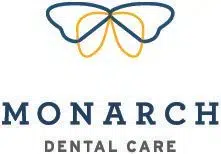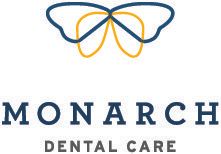
Antibiotic Therapy for Periodontal Disease: A Comprehensive Guide
Gum disease is a common oral health issue caused by a buildup of bacteria in the mouth, leading to inflammation, bleeding, and eventually tooth loss if left untreated. One of the most effective ways to combat gum disease is by using antibiotics.
While antibiotics aren’t always necessary, our Prairie Village dentist explains the advantages of antibiotics in the fight against gum disease and when they may be recommended. If you have gum disease and need treatment, contact our dental office today by calling (913) 362-4488.
Understanding Gum Disease
Gum disease, characterized by inflammation and infection of the gums, is caused by a buildup of plaque and tartar. If not addressed promptly, it can progress to periodontitis, a more severe stage where the tissues supporting the teeth are destroyed.
The Role of Antibiotics in Gum Disease Treatment
Antibiotics are medications used to combat bacterial infections. In the context of gum disease, they play a vital role by targeting the harmful bacteria that contribute to inflammation and tissue damage.
Benefits of Antibiotic Therapy
Some benefits of antibiotics for gum disease include:
- Infection Control: Antibiotics effectively eliminate the bacteria causing the gum infection, preventing further tissue destruction.
- Pain Relief: By addressing the underlying infection, antibiotic therapy can help alleviate pain and discomfort associated with gum disease.
- Healing Promotion: Antibiotics create an environment conducive to healing, allowing the gums to recover and regenerate.
- Preventing Complications: Timely antibiotic treatment can help prevent the progression of gum disease to more advanced stages, such as tooth loss and systemic health issues.
When is Antibiotic Therapy Necessary?
Dr. Clark at Monarch Dental Care in Prairie Village, KS, will carefully assess your oral health condition to determine if antibiotic therapy is appropriate. Factors that may indicate the need for antibiotics include:
- Severe Gum Infection: If the gum infection is extensive or accompanied by significant inflammation, antibiotics may be necessary to control the spread of bacteria.
- Abscess Formation: An abscess is a pocket of pus that forms in the gum tissue. Antibiotics are often required to treat abscesses and prevent their recurrence.
- Systemic Symptoms: In some cases, gum infections can lead to systemic symptoms, such as fever or fatigue. Antibiotics may be prescribed to address these symptoms and prevent further complications.
Types of Antibiotics Used for Gum Disease
Several types of antibiotics may be used to treat gum disease, depending on the severity of the infection and the specific bacteria involved. Common options include:
- Penicillin: A widely used antibiotic that is effective against many bacteria.
- Tetracycline: A broad-spectrum antibiotic that can target a variety of bacteria.
- Cephalosporins: A class of antibiotics known for their effectiveness against gram-positive and gram-negative bacteria.
- Metronidazole: An antibiotic commonly used to treat infections caused by anaerobic bacteria.
Factors to Consider
- Antibiotic Resistance: The overuse of antibiotics can contribute to antibiotic resistance, making infections more difficult to treat. It is important to follow Dr. Clark's instructions regarding the prescribed antibiotics to minimize the risk of resistance.
- Side Effects: Like any medication, antibiotics can have side effects. It is essential to inform Dr. Clark about any allergies or underlying health conditions that may affect your tolerance to antibiotics.
- Complementary Therapies: While antibiotics are often crucial for treating gum disease, complementary therapies, such as good oral hygiene practices and professional cleanings, can also play a vital role in maintaining oral health.
Antibiotic Alternatives
Antibiotics aren’t the only option for gum disease treatment. Several alternatives that may be recommended include:
- Herbal Remedies: Some herbs, such as tea tree oil or echinacea, have antibacterial properties that can assist in fighting off the bacteria that cause gum disease. They may be used in the form of mouthwash, supplements, or topical treatments.
- Probiotics: These are beneficial bacteria that can help balance the oral microbiome and prevent harmful bacteria from proliferating. They can be taken as supplements or consumed in fermented foods, like yogurt.
- Laser Therapy: A non-invasive treatment that uses special dental lasers to remove plaque and bacteria from the gum line.
Frequently Asked Questions
Take Control of Your Oral Health With Antibiotic Therapy for Gum Disease
Antibiotics can help quickly and effectively reduce the bacterial infection that causes gum disease, leading to improved oral health and overall well-being. Don’t let the fear of potential side effects or concerns about long-term use prevent you from taking action to improve your oral health.
Contact our Prairie Village dental office today to learn more about the benefits of antibiotic therapy and other effective treatments for gum disease. Call (913) 362-4488 to schedule your appointment and take the first step toward a healthier smile!

